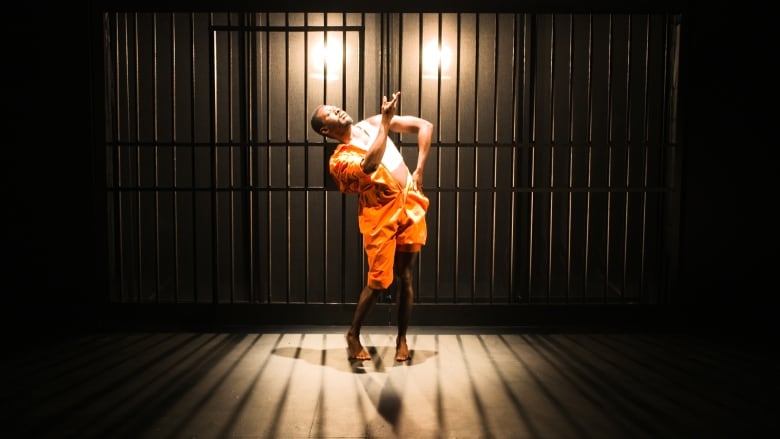How Tawiah Ben M'Carthy's one man show is fighting for gay rights in Ghana
Six years after first debuting his play Obaaberima, little has changed for Ghana's LGBTQ community

In over 70 countries around the world, same sex relationships are still illegal.
It's a contentious issue in Ghana. Earlier this year the state-run newspaper the Ghanaian Times published an editorial called "Let's Unite to Reject LGBT" urging its readers to fight against what they call an "international conspiracy." Soon after it was published, LGBTQ groups in Ghana held protests in the legislature, urging members of parliament to do the right thing and update the countries antiquated colonial sodomy laws. While Ghana was the first west African country to achieve independence in 1957, the legacy of colonialism lives on, making it impossible for the LGBTQ community in Ghana to be visible and remain safe. But for one queer Ghanaian artist living in Canada, fighting against the erasure of his community is just the start.
Watch the video:
Tawiah Ben M'Carthy wanted to talk about it. In 2012, through a residency program at Buddies in Bad Times Theatre, he staged the first performance of a play called Obaaberima — a derogatory phrase in the Akan language Twi which translates to "girl boy" or "girly boy." Six years, multiple performances and three Dora awards later, the much-celebrated play has returned — but little has changed in terms of gay rights for those living in Ghana.
The story follows a young man from Ghana who ends up in a Canadian prison. The day before he is released from prison, he recounts the journey of how he got there — an emotional confession which delves into his race, sexuality and religion. While this play draws from many of Tawiah's own personal experiences, he is quick to qualify that this character is a unique singular story and not meant to represent a monolithic gay African experience.

Growing up, Tawiah didn't have the words to define what it meant to be gay. As far as he knew then, and is still true today, he is unaware of any word in the Twi language to describe homosexuality except for the derogatory term the play is named after. This is problematic on many levels: to not be able to define yourself due to the limitations of your native language is, in many ways, to be destined to be mistreated and misunderstood.
In this current political climate, it is not possible for Tawiah to safely perform this show back in his home country of Ghana — but he is creating the type of art that just may affect people enough to provoke that change in his lifetime. As he puts it: "You need people who are maybe ready to disrupt a system that may not be ready yet to be disrupted."

Stream CBC Arts: Exhibitionists or catch it on CBC Television Friday nights at 11:30pm (12am NT) and Sundays at 3:30pm (4pm NT). Watch more videos here.


